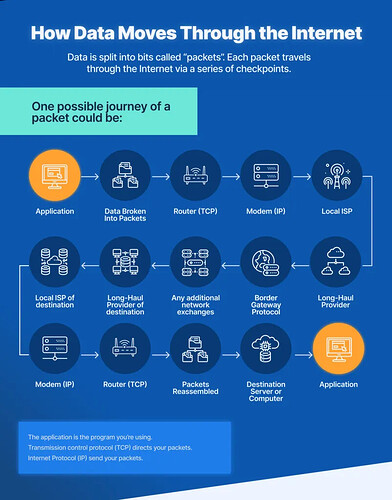The main question I am trying to understand:
What is the maximum extent to which a phone system is reasonably “self-hostable”?
Understanding what is and isn’t possible or feasible has been difficult since there is such a steep learning curve with phone related technology. I’m lost with all the vocabulary and amazed at how phone systems have managed to stick around this long considering how legacy some of this technology seems.
- DID
- SIP
- PBX
- POTS
- PSTN
- IAX
- CallerID
- SRTP
- SMS/MMS
- RCS
- …
I am approaching this from the perspective of self hosted computer systems, email for example.
To self host email to a maximum but reasonable extent, I would need:
- A computer to run email software on (such as exchange)
- A domain name
- A connection to the internet (ISP)
There are varrying degrees of “self-hostability” for these items, however.
Domain name
The most self-hosted way you typically acquire a domain name is by going through a registrar since it is not feasible to pay ICANN or whoever to become your own registrar and then purchase your own TLD or some such thing. It is generally agreed upon that unless you’re a giant company capable of purchasing your own TLD, you’re just going to have to go through a registrar. Okay, fine.
ISP
The most self-hosted way is to just purchase an IP address from an an internet service provider since it is not feasible for someone to setup their own infrastructure for connecting to the internet backbone to become their own ISP, (though not impossible!). You’re just going to have to buy your IP address from an ISP. Okay, fine.
A computer
The distinction between self hosted and non-selfhosted is very clear here: if I can touch the computer with my hand, it is self hosted. Of course you can also argue that a VPS is “self hosted” in the sense that you’re managing the OS but someone else is managing the hardware, but let’s say we’re trying to be in control of as much of the infrastructure as possible, so that means server rack in your basement.
The internet
I have a fairly clear understanding of how internet traffic works via your computer, your ISP, the internet backbone, DNS, etc. But the topology of a phone network is an entirely different beast.
The phone system

Main question
Back to my main question:
What is the maximum extent to which a phone system is reasonably “self-hostable”?
- Where should I start reading to get an introductory understanding of phone systems?
- PSTN - is this outdated?
- What are the corollaries to my email example for the phone system?
3.1. Can the services of voip.ms be self hosted?
3.2. How do you buy phone numbers like how you buy IPs?
3.3. Where does Asterisk, FreePBX, etc. fit in to all this?
